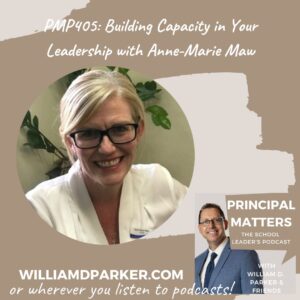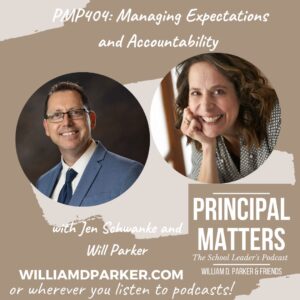Podcast: Play in new window | Download
This summer my wife and I enjoyed time away celebrating our twenty fifth wedding anniversary in Lake Tahoe, Nevada.

One afternoon we drove to Emerald Bay, a cove nestled a mile below the mountain highway there. We hiked down the trail and rented a kayak. When we pushed away from shore, I was immediately struck by the clarity of the water. Gray mountains covered in tall pines and shrubs formed a semi-circle around the cove. As you look across the water, the blue skies shine across the clear, spring-fed surface with a silvery-blue hue.
My wife, Missy, was sitting up front, her bare legs and feet extended straight out on the front of the boat as she soaked in the sunlight. We rowed ahead until we approached the round boulders of a small island where we stopped for photos and selfies. This was a happy moment, and we were doing what we loved most – being outdoors together…
When I was a junior in college, I had a Christmas party to attend at the end of my fall semester, and bringing a date was a requirement for attending the party. At the time, I wasn’t dating anyone. But I asked myself what I realize now was one the most important questions in my life:
“Who would be ‘the perfect girl’ to ask on this date?”
I started making a mental list: It should be girl who was pretty and smart. I wanted her to care about her spiritual life and be dedicated to a strong personal vision. It was a tall order. On top of it all, I could only offer a fun, non-romantic evening with no expectations of a second date.
My first memory of Missy had been after my freshman year in college. We had attended some summer trainings together, but I didn’t really know her. Over the next couple of years, I would see her at various gathers. She was fun-loving and other girls looked at her as a leader.
During my junior year, Missy’s younger brother came to live in on my floor. I remember a photo he kept of her on his desk. One day I stopped to look at it. Wow, I thought. She’s pretty. I started paying more attention.
Six weeks before the Christmas party, Missy and I were working together at a campus event. I didn’t want to miss the opportunity to be the first to ask her. So, after working up my courage, I decided to go for it. What could I lose?
“Hey,” I said as I walked up to the table where she sat. She looked up and smiled.
“I have a question I want to ask about your…calendar,” I started.
“Okay?” she glanced at me curiously, and pulled out a planner from her bag.
I thought hard of what say next.
“I was wondering what you might be doing on December 6? I mean, I know that’s a long time from now, but I wanted to see if you had anything scheduled then?”
“Well,” she paused then thumbed through the pages and stopped.
“Actually…I don’t have anything planned on that day.”
“Cool,” I said, “Could I…pencil something in for you?”
She smiled and handed it to me. I took a pencil from the table and wrote:
–Men’s RA Christmas Party, 6PM – Will Parker
And then I handed it back.
She looked at the page for a moment and then back at me.
“Could you go?” I asked.
It was the longest moment of my life, and suddenly, I realized how much I wanted her to say yes.
“OK,” she said. “I don’t have anything else going on then. So, I’d be glad to go.”
It wasn’t the smoothest approach for asking out the perfect girl. But as I walked away, I reminded myself that this was just going to be one date…
One year ago, Missy and I stood on the banks of the Illinois River in Eastern Oklahoma. Our four kids were skipping rocks on the water, and we were watching as the sun set orange above towering trees on the opposite bank. I sat down on a nearby picnic table, and everyone gathered around.
“I have an announcement to make,” I said. “You know I’ve been offered a new job as an executive director for my principal association, and I’ve decided to take it.”
Emily, my oldest daughter, began to cry. Missy and I looked at each other, and then we all gathered around her for a group hug. Emily had just graduated from Skiatook, the school I had been at for the past ten years, and we had a lot of memories there. It would be hard to say goodbye.
We talked for a long time as a family about what the next year might look like. Each family member took a turn talking about the ups and downs for the coming school year. Soon we had settled what the way forward would look like. As our children walked ahead of us, we watched them strolling across the grass and through the trees back toward our cabin…
Why Your Marriage Matters
Not every moment in our marriage and family has been filled with blissful memories like these. Marriage is a series of ups and downs. For every happy moment you share, you also experience sleepless nights, unresolved conflicts, broken promises, and strained commitments. But the investment is worth it.
I’ve shared before about the first few years when I transitioned from teaching to school administration. The over commitment to school hurt my marriage and my health. Thankfully, my wife had the courage to tell me that I had become a shell of the man I used to be. This wake-up call forced me to rethink my priorities in every area of my life. And my marriage was one of them.
In the book, The 5 Love Languages: The Secret to Love that Lasts, author Gary Chapman talks about the importance of understanding the specific ways your spouse receives love. Maybe it’s quality time or giving something that expresses appreciation. Perhaps it’s physical affection or acts of service. Sometimes it is verbal praise.
Chapman explains how each time you communicate love to your spouse in his or her own “language”, you make deposits in their love bank. Each time you fail to invest, you are making withdrawals. The equation is simple: when you make more meaningful deposits than withdrawals in your marriage, you increase the potential to grow closer over time.
A Healthy Marriage is a Healthier You
Dr. Robert H. Shmerling, the Faculty Editor for Harvard Health Publishing, talks about the benefits of marriage in a post from November 30, 2016 in his blog at Health.Harvard.edu.
He writes:
“…there is fascinating — and compelling — research suggesting that married people enjoy better health than single people. For example, as compared with those who are single, those who are married tend to
• live longer
• have fewer strokes and heart attacks
• have a lower chance of becoming depressed
• be less likely to have advanced cancer at the time of diagnosis and more likely to survive cancer for a longer period of time
• survive a major operation more often.
This doesn’t mean that just being married automatically provides these health benefits. People in stressful, unhappy marriages may be worse off than a single person who is surrounded by supportive and caring friends, family, and loved ones. Interestingly, many of these health benefits are more pronounced for married men than for married women.”
When you look at the prevailing research, it is easy to see why a healthy marriage is important and worth the investment. But as you lead a school or organization, how do keep perspective? How do you encourage a mindset for prioritizing the one person who will still be with you long after your time in school leadership is over?
6 Questions for Your Reflecting on Your Marriage
Although these questions are important for any meaningful relationship, I would like to speak directly to those leaders who are married. It’s the context I’ve lived in the last twenty-five years so I want to be able to speak from that experience.
When is the last time you’ve done an inventory on your commitment to your marriage? Here are six questions to consider:
1. When is the last time you revisited your marriage vows?
If you haven’t read your marriage vows lately, pull them out or listen closely at the next wedding you attend. Most likely they say something like this:
“I, ___, take thee, ___, to be my wedded husband/wife, to have and to hold, from this day forward, for better, for worse, for richer, for poorer, in sickness and in health, to love and to cherish, till death do us part, according to God’s holy ordinance; and thereto I pledge thee my faith [or] pledge myself to you.” (theknot.com)
Promises are important, and if you really meant what you said, your spouse should be the one person you prioritize above everyone else in your life.
2. Are you giving your spouse first place over your other relationships?
Giving your spouse first place with your time and commitment has a lot of implications First it means what he or she thinks trumps what others think. This doesn’t mean you don’t debate or disagree. But it means his or her opinion always matters. Give your spouse the due respect she deserves when offering you suggestions, feedback or advice. As you do, you will save yourself a lot of pitfalls because your spouse often sees things you are blind to seeing.
In every major career move I’ve made, Missy and I have weighed the pros and cons together. Staying unified in major decisions doesn’t mean agreeing on every point. But it does mean not moving ahead until you’re in agreement. Yes, this also means compromise. And learning to compromise equals healthier relationships.
3. Are you committed through the highs and lows?
No matter how much you love someone, you will go through seasons of ups and downs. Don’t let how you feel determine your commitment to your promises. Promises and vows are kept regardless of how you feel. But here’s a secret. When you act in response to the promises you’ve made, the right feelings almost always follow. This is especially important in romance and sex. Our culture is obsessed with the idea of being led by your feelings.
When you spend years with another person, your feelings can change often depending on your season in life. Raising children or starting a new job is hard work. Facing disease or health problems can create major stress. I can only speak from my own experience: If your commitment to your spouse is based on a love that is solid no matter the ups or downs, you will always find the feelings returning as you journey together with that unwavering commitment.
4. Are you willing to keep learning and cooperating?
Healthy spouses are honest with each other while also showing each other a lot of grace. One of the best decisions Missy and I made early in our marriage was taking a “Couples Communication” course. We read the book, A Couple’s Guide to Communication by John Gottman. It was written in the 70’s but the skills we learned are still relevant.
We learned how to practice open postures when talking, how to ask better questions, and how to repeat ourselves again until we really understood one another. Practicing how to resolve conflicts and working through difficult conversations has been a bedrock for us. During our first year of marriage, we scheduled a date every Saturday morning for space to talk through any questions or conflicts that had surfaced during the past week. And over the years, that early practice taught us a lot of skills we still use today.
5. Can you admit when you need help?
When you hit walls that you can’t seem to conquer, ask for help–whether that’s reaching out to a trusted counselor or friend or whether you simply stopping and praying together. It is also wise to reach out to others when you can’t seem to resolve issues.
I have learned this lesson the hard way many times. When I’ve been willing to admit I cannot find solutions to major disagreements, I’m always surprised what this does for my own attitude. Just the simple act of admitting I need help can be the game changer sometimes for moving ahead with a shared solution.
6. Are you investing in time together and celebrating milestones?
Although my wife and I don’t have a set date night every week, we have tried to make it a priority to reconnect in the ways that matter for the both of us. For my wife, that means quality time together. We also love to travel together and as a family.
A couple of years ago, a good friend of mine lost his wife to a rare disease after 35 years of marriage. The one piece of advice he gave me then was: Go on vacation together every year even if it is something you have to back later. The memories you build will be something you hold onto for the rest of your life.
Let’s Wrap This Up
This past week I sat by the bedside of my mother-in-law who has Alzheimer’s. She had had complications with her medications that hospitalized her for a few days while her doctor adjusted her dosages. As she recovered, Missy and I took turns staying with her. One night, I was alone with her and we talked about when I first met Missy.
Because her memory is fading, she looked at me a few minutes later and said, “Where is Missy?”
“She’s gone home to the put the kids to bed,” I’d explained.
As she drifted off to sleep, I realized that someday my wife or I may be taking care of each other while the other lays in a hospital bed.
If you are married, old age will someday fade your strength and memories. And when that time comes, you will not be worried about your master schedule or whether you read all your emails. But you will care about your most intimate relationships.
On our trip to Emerald Bay, Missy and I walked the edge of the shore after boating. We stood ankle deep in the cool waters and watched as other boats and kayaks moved across the surface. The sands under our feet swirled with golden flecks. Ducks rested on a floating log nearby.
As she took photos with her phone, I thought about our decades together: the loss of her first pregnancy in miscarriage, holding her hand in the births of our all four children, lit candles of a toddler birthday parties, the late nights helping kids study for tests, the long roads to band camps, the joy and tears at graduations…holding each other’s hands by the gravesides of lost family members.
Through it all, we’ve often returned to the promises we made one another – promises to put one another ahead of our own personal interests – vows that seem so old-fashioned in a world where you’re so often told that nothing is as important as your personal happiness and fulfillment. But commitments that are worth it.
Even in the busyness of school, if you are married, make it a priority to revisit your promises, give your spouse the priority he or she deserves, stay committed through the highs and lows, keep learning together, admit when you need help, and celebrate the milestones along the way.
As you do, you will find the lessons from this most meaningful relationship keeping you both humble and inspired as you keep rowing ahead together.
Now It’s Your Turn
If you are married, how can you take time to keep your marriage a priority? How can you encourage your teachers and teammates to prioritize time with their spouses and families? Even in the busyness of school leadership, what are some routines or practices you follow for staying connected to the ones you love?
Sign-Up For Free Updates and Ebook
When you enter your email address below, you will automatically receive my newest posts and a free Ebook, 8 Hats: Essential Roles for School Leaders. Let’s keep learning together!
Subscribe for free weekly updates and receive free e-book!
(function($) {window.fnames = new Array(); window.ftypes = new Array();fnames[0]=’EMAIL’;ftypes[0]=’email’;fnames[1]=’FNAME’;ftypes[1]=’text’;fnames[2]=’LNAME’;ftypes[2]=’text’;}(jQuery));var $mcj = jQuery.noConflict(true);
Principal Matters–The Book!

School leaders are very busy, so each of the twenty-four chapters is designed as a quick-read and followed with take-action questions for follow-up or reflection. If you want practical ideas on understanding your purpose, managing school teams, dealing with challenges, and leading with courage, action, motivation, and teamwork, go HERE to pick up a copy for you or your team.
Messaging Matters

Harness the power of messaging to create a culture of acknowledgment, respect, and celebration. Written specially for leaders, this title is divided into three parts, helping readers to maximize their role as chief communicators with students, teachers, and parents and community. Each chapter includes suggestions for using digital tools to enhance messaging and ends with reflection questions and practical next steps.


